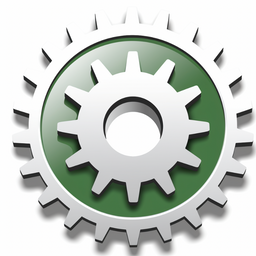Open-Source Python Projects To Contribute To in 2024
Dive into open-source Python projects in 2024. Learn, contribute, and impact the tech world. Your journey starts now!

Introduction
In the dynamic realm of software development, contributing to open-source projects is a beacon of learning, collaboration, and innovation. Among the plethora of programming languages, Python stands out as a prime candidate for open-source enthusiasts. Its simplicity, versatility, and broad acceptance in both academic and professional circles make it an ideal tool for developers looking to make a significant impact. As we step into 2024, the opportunities to contribute to open-source Python projects have never been more enticing or rewarding.
Open-source projects offer a unique platform for developers to hone their skills, collaborate with a global community, and contribute to the advancement of technology. Whether you're a seasoned developer or a newcomer eager to dip your toes into the world of coding, Python's open-source ecosystem provides a welcoming and enriching environment for all.
This blog aims to guide you through the why and how of contributing to open-source Python projects in 2024. We'll explore a variety of projects, ranging from AI and machine learning to web development and data visualization, each with its own set of challenges and rewards. By the end of this journey, you'll not only be equipped with the knowledge of where to direct your efforts but also understand the profound impact your contributions can have on both your personal growth and the wider tech community.
So, whether you're looking to sharpen your Python skills, make meaningful contributions to projects you're passionate about, or simply explore new technological horizons, this guide is your first step towards a fulfilling open-source adventure in 2024.
Let's embark on this journey together, unraveling the myriad of opportunities that await in the open-source Python landscape. Whether your interest lies in the intricacies of AI algorithms or the elegance of web frameworks, there's a project out there waiting for your unique contribution.
Why Contribute to Open-Source Python Projects?
Contributing to open-source projects is more than just a means to improve coding skills; it's a doorway to a world of collaborative innovation and personal growth. Python, with its wide applicability and supportive community, offers a fertile ground for contributors of all levels. Let’s delve into the reasons why contributing to open-source Python projects is a worthy endeavor in 2024.
Learning and Development Opportunities
One of the most compelling reasons to contribute to open-source is the unparalleled learning experience it offers. Python projects span across various domains, from web development and machine learning to data analysis and beyond. Engaging with these projects exposes you to new technologies and coding paradigms, allowing you to learn from more experienced developers and even mentor those who are newer to the field. The dynamic challenges presented by real-world projects accelerate your learning curve, enhancing your problem-solving skills and technical expertise.
Building a Portfolio and Community Engagement
For developers at any stage of their career, showcasing your skills is crucial. Contributing to open-source Python projects helps you build a tangible portfolio that demonstrates your technical prowess, commitment, and ability to collaborate effectively. It’s a testament to your hands-on experience with project management tools, version control systems like Git, and the practical application of coding standards and documentation.
Moreover, the open-source community is a hub of networking opportunities. Engaging with other contributors can lead to professional connections, mentorship, and even job opportunities. The collaborative nature of open-source projects fosters a sense of belonging and support, making it an ideal environment for personal and professional growth.
Contributing to Impactful Projects
The essence of open-source lies in its power to drive innovation and solve complex problems. By contributing to Python projects, you become part of a larger mission to create technology that benefits the global community. Whether it's improving accessibility, advancing scientific research, or developing tools for social good, your contributions have the potential to make a significant impact.
In the realm of Python, where the language's flexibility and efficiency are leveraged for diverse applications, the impact of your contributions is magnified. Projects in 2024 are tackling some of the most pressing challenges of our time, from climate change and healthcare to education and privacy. Being part of these initiatives not only allows you to contribute to meaningful causes but also to grow as a developer and individual.
How to Choose a Python Project to Contribute to
Embarking on your open-source journey involves more than just deciding to contribute; it's about finding a project that aligns with your interests, skills, and the impact you want to make. With the vast array of Python projects out there, narrowing down your options can seem daunting. This section aims to simplify that process, guiding you through the key considerations to keep in mind when choosing a Python project to contribute to in 2024.
Understanding Your Skill Level and Interests
The first step in choosing a project is self-assessment. Reflect on your current Python skills and any specific areas you're keen to explore or develop further. Are you fascinated by machine learning algorithms, or do you prefer building user-friendly web applications? Your interests not only motivate your contribution but also determine the kind of projects you'll find rewarding.
For beginners, look for projects labeled as "good first issue" or those with a supportive community willing to mentor newcomers. Intermediate and advanced developers might seek out projects that challenge their technical abilities and offer the chance to innovate.
Assessing the Health and Activity of a Project
A project's health and activity level are crucial indicators of a worthwhile contribution. A healthy project typically has:
- Active Maintenance: Regular updates and bug fixes indicate a project is actively maintained.
- Community Engagement: Look for projects with active discussions, pull requests, and contributions from a diverse group of developers.
- Clear Documentation: Well-documented projects make it easier for new contributors to get involved and understand the project's architecture and contribution guidelines.
Tools like GitHub provide insights into a project's activity, such as the number of open issues, recent commits, and contributor engagement. A vibrant and welcoming community not only enhances your learning experience but also ensures your contributions are impactful.
Identifying Projects with a Meaningful Impact
Aligning your contributions with your values can be incredibly fulfilling. Whether you're passionate about environmental sustainability, education, healthcare, or open science, there's likely a Python project out there with goals that resonate with yours. Contributing to projects that aim to solve real-world problems can provide a sense of purpose and motivation, making your open-source journey both impactful and rewarding.
Where to Look for Python Projects
I have written another blog on this for beginners. You can check below.

Finding the right project requires knowing where to look. Here are some platforms and resources to start your search:
- GitHub Explore: A great place to discover trending Python projects and topics.
- PyPI (Python Package Index): Offers a wealth of Python projects across various domains.
- Open Source Project Finders: Websites like CodeTriage or Up For Grabs list projects in need of contributors, often categorized by difficulty or technology.
- Python-specific Communities: Forums like Python.org, Reddit’s r/Python, or the Python Discord server can be valuable resources for finding projects and connecting with other Python enthusiasts.
Top Open-Source Python Projects to Contribute to in 2024
Navigating the vast landscape of open-source Python projects can be overwhelming. However, 2024 offers a unique array of projects that not only push the boundaries of technology but also welcome contributors with open arms. Below, we’ve highlighted specific, impactful projects on GitHub, focusing on areas from AI and machine learning to web development and data visualization. Each project is chosen for its vibrant community, potential for learning, and opportunities to contribute meaningfully.
AI and Machine Learning Projects
Project 1: AllenNLP
- Description: AllenNLP, developed by the AI2 team, is an open-source NLP research library built on PyTorch. It's designed for high-quality text understanding and generation, providing models and tools for core NLP tasks.
- Why It Matters: AllenNLP simplifies the creation of state-of-the-art NLP models, making advanced research accessible to the broader community. Contributing to this project can help advance the field of natural language processing.
- How to Get Started: Start by visiting their GitHub page AllenNLP and exploring issues tagged as “good first issue” for newcomers to tackle.
Project 2: DeepSpeech
- Description: DeepSpeech is an open-source speech-to-text engine, based on Baidu's Deep Speech research paper. The project, maintained by Mozilla, aims to make speech recognition technology freely available to developers.
- Why It Matters: In an era where voice interfaces are becoming increasingly common, DeepSpeech provides an essential resource for developing accessible technology. Your contributions can help improve speech recognition for diverse languages and accents.
- How to Get Started: Check out DeepSpeech on GitHub and look for open issues, particularly those labeled for new contributors.
Web Development and Frameworks
Project 3: Saleor
- Description: Saleor is a high-performance, GraphQL-first e-commerce platform designed for the modern web. Built with Python, Django, and React, it offers a flexible and developer-friendly framework for building online stores.
- Why It Matters: E-commerce is a rapidly evolving field, and Saleor is at the forefront of introducing cutting-edge technologies to online retail. Contributing to Saleor means impacting a wide range of businesses and consumers by enhancing an open, modular platform.
- How to Get Started: Dive into Saleor’s GitHub repository and consider tackling issues tagged as “good first issue” to get a feel for the project.
Project 4: Pelican
- Description: Pelican is a static site generator that requires no database or server-side logic. It supports Markdown and reStructuredText for content creation, offering a simple yet powerful platform for developing blogs and websites.
- Why It Matters: As web development trends lean towards simplicity and speed, projects like Pelican empower developers and writers to create fast, secure websites without the overhead of dynamic content management systems.
- How to Get Started: Visit Pelican on GitHub and look for issues labeled “good first issue” or “help wanted” to begin contributing.
Data Analysis and Visualization
Project 5: Folium
- Description: Folium builds on the capabilities of the Python Data. Science stack and Leaflet.js to help you create interactive maps. It enables the visualization of data that’s been manipulated in Python on an interactive Leaflet map.
- Why It Matters: Geospatial data visualization is a critical tool in many fields, including environmental science, urban planning, and public health. By contributing to Folium, you help enhance an essential tool for researchers and analysts worldwide.
- How to Get Started: Explore the Folium GitHub page for issues to address, especially those welcoming first-time contributors.
If you are into Data Science and want to learn more about Data science with Python, you can check my blog on this topic as below:

Project 6: Orange
- Description: Orange is an open-source data visualization, machine learning, and data mining toolkit. It features a visual programming front-end for explorative data analysis and interactive data visualization, and can be extended with Python scripts.
- Why It Matters: With the growing importance of data in decision-making, Orange makes advanced data analysis more accessible. Contributions to this project support education, research, and data science professionals by simplifying complex data analysis tasks.
- How to Get Started: The Orange GitHub repository lists several ways to contribute, from developing new widgets to improving documentation.
Contributing Effectively: Tips and Best Practices
Embarking on your journey as an open-source contributor can be both exhilarating and daunting. Whether you're making your first contribution or looking to deepen your involvement, understanding how to contribute effectively is key to a rewarding experience. Here are essential tips and best practices for contributing to open-source projects, ensuring your efforts are impactful and appreciated.
Understand the Project's Contribution Guidelines
Every open-source project has its own set of rules and guidelines for contributions. Before diving in, take the time to read these thoroughly. They can usually be found in the project’s README file or in a separate CONTRIBUTING file in the project’s GitHub repository. These guidelines might include instructions on how to submit an issue, propose a feature, or make a pull request (PR). Following these guidelines not only shows your respect for the project maintainers’ work but also increases the chances of your contribution being accepted.
Start with Small Contributions
It’s tempting to jump in with big ideas and changes, but starting with small contributions can be more beneficial. Look for issues tagged with labels like “good first issue” or “help wanted”. Fixing a bug, improving documentation, or adding small features are excellent ways to get familiar with the project's codebase and contribution process. Small wins will build your confidence and establish your credibility within the community.
Communicate Effectively
Good communication is vital in the open-source community. When contributing to a project, whether it’s through GitHub issues, pull requests, or community forums, make sure your communication is clear, concise, and respectful. If you’re submitting a pull request, provide a detailed description of the changes and the reasons behind them. Be open to feedback and ready to make revisions based on discussions with project maintainers.
Learn from the Community
Open-source projects are collaborative efforts. Engage with the community by participating in discussions, asking questions, and offering help to others. Many projects have dedicated forums, mailing lists, or chat channels where contributors can connect. Engaging with the community not only helps you learn and grow but also builds relationships with other contributors and maintainers.
Be Patient and Persistent
The open-source contribution process can sometimes be slow, with delays in reviews or discussions. It’s important to be patient and understand that maintainers are often volunteering their time. If you don’t receive immediate feedback, it’s acceptable to gently follow up after a reasonable amount of time. Persistence and a positive attitude go a long way in the open-source world.
Respect the Community Guidelines and Code of Conduct
Most open-source projects have a code of conduct that outlines the expectations for behavior within the community. This can include how to interact respectfully with others, how to handle conflicts, and more. Adhering to these guidelines is crucial for maintaining a positive and inclusive environment where everyone feels welcome to contribute.
Conclusion and Call to Action
As we've journeyed through the vast and vibrant landscape of open-source Python projects in 2024, it's clear that the opportunities for learning, contributing, and making an impact are boundless. From AI and machine learning to web development and data visualization, the Python community continues to thrive, driven by the passion and dedication of its contributors. Whether you're a seasoned developer or someone just starting out, the open-source world welcomes you with open arms, offering a platform to enhance your skills, collaborate with global talents, and contribute to projects that fuel innovation and change.
Reflecting on the Journey
Contributing to open-source is more than just writing code; it's about becoming part of a community that shares your passion for technology and innovation. It's a pathway to personal and professional growth, offering experiences that challenge you, inspire you, and ultimately, transform you. The projects highlighted in this blog are just a starting point—thousands of open-source Python projects are waiting for your unique contributions. Each line of code, each piece of documentation, and every bug report plays a crucial role in the evolution of these projects and the broader tech ecosystem.
The Ripple Effect of Your Contributions
By contributing to open-source projects, you're not only enhancing your own skills but also enriching the lives of others—be it through tools that advance scientific research, platforms that connect communities, or technologies that make the digital world more accessible. The open-source model thrives on collaboration and shared knowledge, and every contribution adds to a collective pool of resources that empower individuals and organizations around the globe.
A Call to Action: Dive In and Contribute
Now is the perfect time to take the leap and dive into the open-source community. Choose a project that resonates with your interests and skills, and start contributing today. Remember, every contribution counts, no matter how small. Whether you're fixing a bug, improving documentation, or proposing new features, you're making a valuable addition to the project.
Engage, Share, and Grow
We encourage you to share your experiences and learnings as you embark on your open-source journey. Engage with the community, seek out mentorship, and offer guidance to those who are just starting. The open-source ecosystem is enriched by diversity of thought, expertise, and perspective—your voice matters.
Final Thoughts
As we look forward to the innovations and advancements that 2024 will bring to the open-source community, let's commit to contributing, learning, and growing together. The power of open-source lies in its ability to unite individuals from across the globe in pursuit of a common goal: to create technology that is open, accessible, and impactful.
We can't wait to see the contributions you'll make and the difference you'll create in the open-source world. The future is bright, and it's ours to build—line by line, project by project.




Comments ()